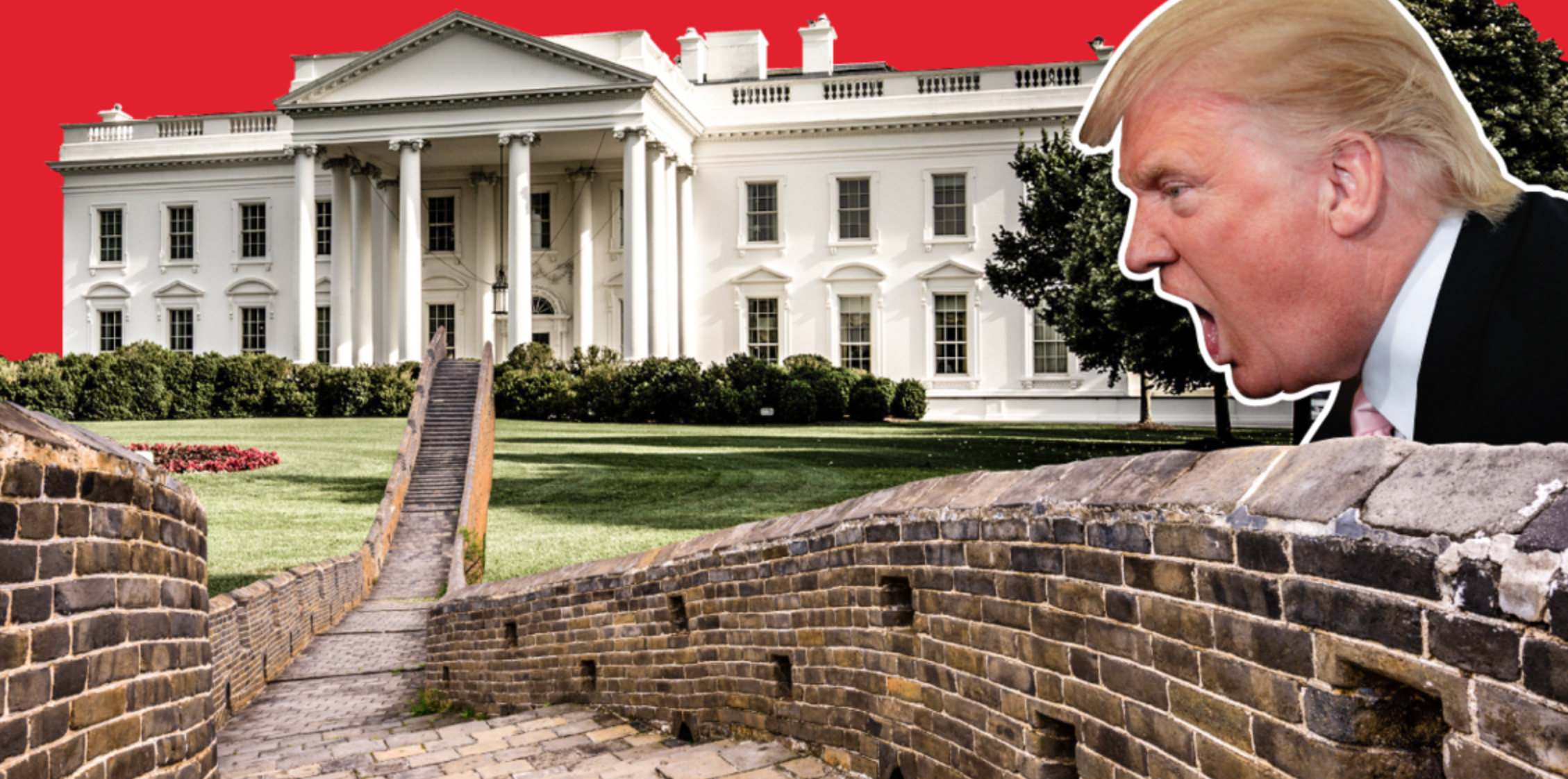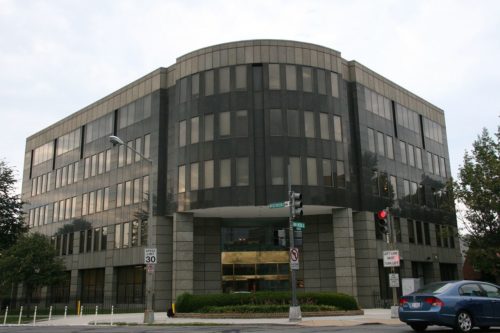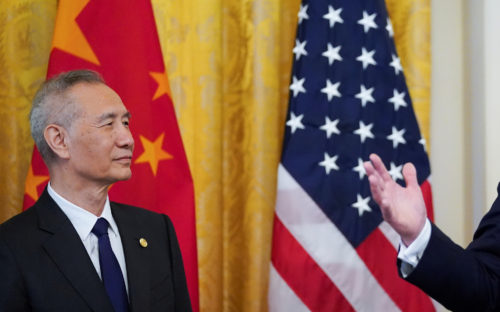Trade war, day 188: Will Trump’s stock market obsession cut short negotiations?

For over half a year, we have tracked the escalation of tariffs and the outlook for economic tension between the U.S. and China. The tariff escalation stopped on December 1, when Donald Trump and Xí Jìnpíng 习近平 agreed to a vague 90-day cease-fire. (Though tension over technology and national security is higher than ever, as best exemplified by the arrest of Huawei CFO Mèng Wǎnzhōu 孟晚舟 last month.)
- One outcome of that 90-day period could be a breakdown in talks, and yet another escalation so that the entirety of trade in goods between the two countries are tariffed. Near the start of the 90-day period, as Trump was boasting of his credentials as “a tariff man,” this seemed to be the most likely outcome.
- Another outcome could be, of course, a deal. This may be a small deal that amounts to mostly an extension of the talks — which Trump indicated was a possibility on the same day he dubbed himself “tariff man” — or it could be a more substantial deal.
- But it is unlikely to be very substantial, from the perspective of American hardliners. Despite many months of the Trump administration hammering home that it is frustrated with how China treats foreign companies and their intellectual property, and how it subsidizes its own industries to create an uneven playing field, the sides remain far apart.
- Negotiations over subsidies for the high-tech industries identified in the Made in China 2025 initiative are stuck. The Wall Street Journal says (paywall) that “the two sides remain divided” on this issue, “especially on…subsides to Chinese state-owned enterprises.” Back in May 2018, American negotiators had demanded their Chinese counterparts to “halt all” of these subsidies. China is still likely defending these subsidies as a non-negotiable part of its economic development model.
After three days of talks in Beijing (click here for a roundup of day 2), the U.S. Trade Representative-led delegation is returning to D.C. The USTR issued this statement:
On January 7-9, an official delegation from the United States led by Deputy U.S. Trade Representative Jeffrey Gerrish held meetings in Beijing with Chinese officials to discuss ways to achieve fairness, reciprocity, and balance in trade relations between our two countries. The officials also discussed the need for any agreement to provide for complete implementation subject to ongoing verification and effective enforcement. The meetings were held as part of the agreement reached by President Donald J. Trump and President Xi Jinping in Buenos Aires to engage in 90 days of negotiations with a view to achieving needed structural changes in China with respect to forced technology transfer, intellectual property protection, non-tariff barriers, cyber intrusions and cyber theft of trade secrets for commercial purposes, services, and agriculture. The talks also focused on China’s pledge to purchase a substantial amount of agricultural, energy, manufactured goods, and other products and services from the United States. The United States officials conveyed President Trump’s commitment to addressing our persistent trade deficit and to resolving structural issues in order to improve trade between our countries.
The delegation will now report back to receive guidance on the next steps.
Note that subsidies for industry are not even mentioned in the statement. A Chinese statement is reportedly coming, though I doubt it will be any more detailed. The only area where anyone — in this case an anonymous source, to Reuters — said there was “good progress” was on the “purchase piece,” referring to increased Chinese purchases of American “soybeans, oil, liquefied natural gas and financial services.” Otherwise, the talks went “just fine,” according to Ted McKinney, U.S. undersecretary of agriculture for trade and foreign agricultural affairs.
I think it’s pretty clear that the two sides would need more than 50-odd days to work out all the remaining issues besides a bit of export promotion.
But a Bloomberg report today (porous paywall) also indicates that Trump seems to be readying himself to cut his losses at the end of this 90-day period, and take whatever deal comes to him, declaring victory in order to get a stock market boost. Some excerpts (emphasis added):
President Donald Trump is increasingly eager to strike a deal with China soon in an effort to perk up financial markets that have slumped…
Inside the White House, some key economic advisers are campaigning for a quick resolution to the trade conflict to help soothe battered markets. The S&P 500 Index has fallen about 8 percent since Trump and Chinese President Xi Jinping agreed on a 90-day truce at a Dec. 1 meeting in Argentina…
According to people familiar with the matter, Trump’s willingness to cut a deal with Beijing is driven in large part by his desire for markets to rally…
The president has focused on the stock market as it’s fallen over the past month as a gauge of success or failure, expressing frustration at the volatility, the people said…
But hawks have also been pressing the president to keep his focus on what they see as a long-term fight to address a vast list of Chinese trade abuses…
Advocates of a quick deal with Beijing, including Treasury Secretary Steven Mnuchin and White House economic adviser Larry Kudlow, have used the markets jitters as a cudgel to press their case, the people said.
Leland Miller, chief executive officer of China Beige Book, told Bloomberg: “There’s many in the White House who would like a longer fight, but for now the president has set the tone, and he says he wants a deal. So we’re on our way.”
Other trade-war-related links:
- More reading on the current status of negotiations
U.S.-China trade talks end. Now high-level talks can begin. / NYT (porous paywall)
“The trade talks could help clear the way for higher-level talks this month when President Trump attends the World Economic Forum in Davos, Switzerland. Vice Premier Liu He, China’s economic czar, is expected to go to Washington sometime after that.”
U.S. and China Make Progress on Trade, but Major Hurdles Remain / WSJ (paywall)
“Both sides spent the first day of talks trying to work out details on pledged Chinese purchases of U.S. goods and services, especially farm and energy products, according to the people familiar with the discussions.”
US negotiators push ‘needed structural changes’ on forced technology transfers and IP protection during trade talks with China, but no sign if any agreements were made / SCMP
“Myron Brilliant, vice president of the US Chamber of Commerce, said in a statement on Wednesday that there were encouraging signs resulting from the ‘constructive dialogue’, but stressed that the business community was not primarily interested in ‘one-off purchasing commitments by China’.” - Tesla welcomed in Shanghai and Beijing
Chinese premier meets with Tesla’s Musk as trade talks end / AP
China’s top economic official, Premier Li Keqiang, has met with the CEO of electric car brand Tesla Inc., Elon Musk. Musk and other businessmen met with Li on Wednesday in Beijing at the Great Hall of the People. Tesla broke ground this week in Shanghai on its first factory outside the United States. Musk says production of Tesla’s Model 3 will start late this year.” - Economic slowdown
Chinese consumer confidence remains weak in fourth quarter as Beijing looks for answer to economic worries / SCMP
“Chinese consumer confidence sat at a low level in the fourth quarter and is still well below that of a year ago on greater worries about a slowing economy amid the trade war with the United States, a survey compiled by Beijing-based Capital University of Finance and Economics released on Wednesday said.” - Caution for Americans students in China
Don’t use WhatsApp or WeChat when you’re in China, University of California, Davis tells students / SCMP
“The University of California, Davis has issued a China travel warning to its electrical and computer engineering students, advising them not to use messaging apps like WhatsApp or WeChat or make ‘unfavourable political statements or postings on social media’ while there.” - Huawei to be banned in Norway?
Norway considering whether to exclude Huawei from building 5G network / Reuters - Effects on American farmers
Shutdown hits American farmers already hurt by China trade war / The Guardian - Geopolitics
Opinion: The myth of China as superpower / American Thinker
J.R. Dunn writes that a “trope is being repeated regarding China. China, we are told, is the coming nation. The second largest economy on Earth, soon to be the first. A billion and a half people, each more educated than any American; a military power second to none, with advanced weapons of a nature that we can only gape at.”
But: “Whatever strengths China may possess, it has three enormous weaknesses, all of them crippling, all self-inflicted to one degree or another, all apparent to anyone who cares to look. All have been misrepresented or go unmentioned in the current debate.”
Previously in The China Project’s trade war coverage:
Trade war, day 187: Talks are extended to third day in Beijing






